‘He Raped Three Women’: Prosecution Fires Back in Harvey Weinstein Retrial, as Defense Argues That ‘MeToo’ Warriors ‘Needed a Poster Boy’
‘The defendant does not take no for an answer,’ an assistant district attorney, Nicole Blumberg, tells the jury about Weinstein.

Prosecutors in the rape-case retrial of the movie producer Harvey Weinstein finished their closing argument on Wednesday, which took up the entire court day. The presiding judge will charge the jury on Thursday morning and then deliberations will begin.
“The defendant does not take no for an answer,” an assistant district attorney, Nicole Blumberg, told the jury about Mr. Weinstein on Wednesday, picking up her closing argument where she had left off on Tuesday afternoon.
“Objection,” attorney Michael Cibella called out from the defense table. “Twenty witnesses, none said he didn’t take no for an answer.”
“He raped three women. They all said no,” Ms. Blumberg pushed back, after the judge had overruled the objection. The prosecutor then proceeded to detail the charges the Manhattan district attorney’s office has brought against the movie mogul, two of which were in the previous case.
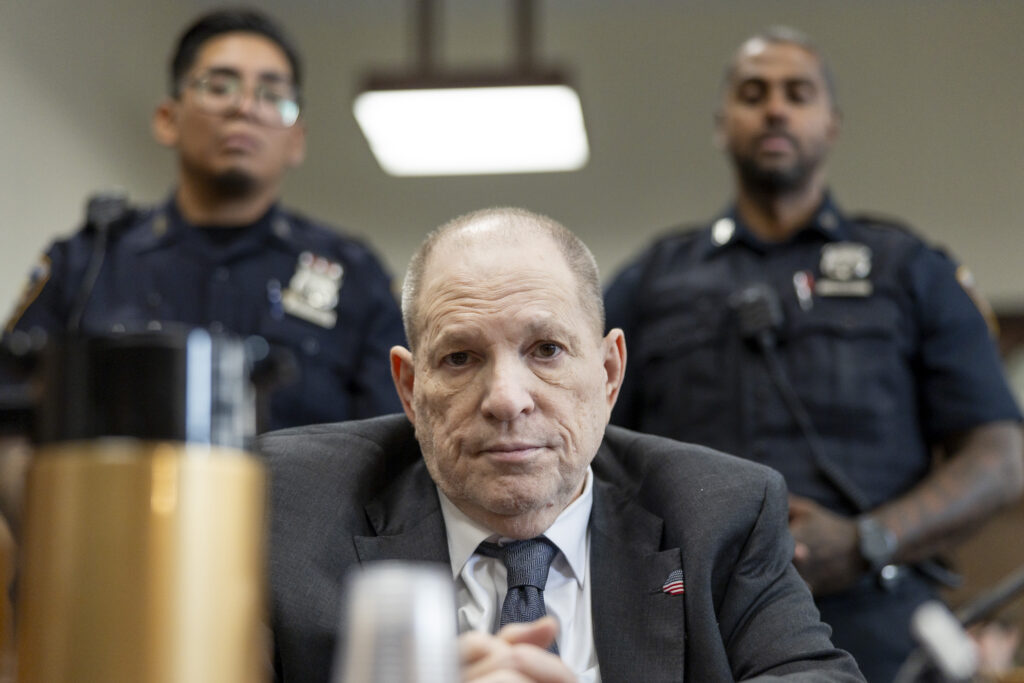
Mr. Weinstein is back in the courtroom at the same Lower Manhattan courthouse where he was convicted five years ago because last year New York’s highest court, the court of appeals, overturned that conviction in a 4-3 ruling, finding that the trial judge wrongly admitted testimony against Mr. Weinstein based on vivid allegations from women who were not part of the case, including a “Sopranos” star, Annabella Sciorra, who testified that Mr. Weinstein barged into her apartment and raped her, then ruined her career after she refused his further advances.
“They needed to get the poster boy, the original sinner for the MeToo movement,” a defense attorney, Arthur Aidala, said in his summation on Tuesday. “They tried to do it five years ago, and there was a redo, and they’re trying to do it again.”
The #MeToo movement, which encouraged women around the world to speak up against sexual abuse and harrassment, was galvanized in 2017 when the actress Ashley Judd spoke on the record to the New York Times about how Mr. Weinstein tried to coerce her into a sexual encounter, and then damaged her career after she refused him. Eventually, more than 80 women came forward in the press and accused Mr. Weinstein of sexual harassment, among them Oscar winners Gwyneth Paltrow, whose career soared when she starred in Mr. Weinstein’s films in the 1990s, Cate Blanchett, and Angelina Jolie. Other actresses, such as the Italian Asia Argento, who dated Mr. Weinstein, accused him of sexual assault.
The Oscar-winning producer denied the allegations, saying the sexual encounters were all consensual, and there was no harassment of any kind. After the Times piece was published, he was forced out of his production company and briefly checked into an Arizona rehab facility, Gentle Path, for sex addiction, leaving early. And then, with the #MeToo movement in full swing, prosecutors did what had previously been thought to be impossible: They brought five criminal charges against Mr. Weinstein. The jury convicted him of two, a first-degree criminal sexual act and a third-degree rape charge. The judge sentenced him to 23 years in prison.

“It would be naive to say that the last jury did not have a tremendous amount of pressure on them with constant protests,” Mr. Aidala told reporters outside the courthouse on Tuesday afternoon, referring to the protests that had accompanied the last trial, which took place during a significantly different social climate. Five years later, there has been a reappraisal of the MeToo movement, its fairness, and its impact on the accused.
“I think that it helps Mr. Weinstein,” Mr. Aidala went on, referring to there being less press hysteria surrounding the case now. “I think it helps the jurors focus on the lack of evidence as opposed to people screaming in the park about what the outcome should be. So we’re hopeful that in 2025, as opposed to in 2020, that jurors will really only focus on the evidence or rather the lack of evidence in reaching their verdict.”
In this, the prosecution agreed, but according to Ms. Blumberg the evidence clearly showed the defendant’s guilt because the women did not consent to the sexual acts Mr. Weinstein allegedly forced them to engage in.
She reminded the jury of an argument the defense attorney had made in his summation, when he said, “We’re not here to police the bedroom.” She agreed, again, saying no one wanted the police in their bedrooms, not “unless there is a rape inside.”

The two charges from the previous case are the third-degree rape of the aspiring actress Jessica Mann in 2013 and the forcible performance of oral sex on a television and film production assistant, Miriam Haley, in 2006. A third charge, which was newly added to this case, is an accusation by a Polish model, Kaja Sokolad, who alleges Mr. Weinstein also forcibly performed oral sex on her in 2006.
“Ladies and gentleman,” the prosecutor said, “no means no, no matter how many times you have had sex with someone before.” Ms. Blumberg was referencing an alleged victim, Ms. Mann, who despite accusing Mr. Weinstein of third-degree rape, had an ongoing sexual relationship with him for about five years.
Ms. Mann “told you she had consented before but on March 18 (2013) she said no, and she had every right to,” the prosecutor argued.
Later, Ms. Blumberg showed the jury medical records from 2013, after Ms. Mann had admitted herself to an emergency room because she was cutting herself and had suicidal thoughts. The medical records showed that Ms. Mann had told the treating physician about the rape allegation.
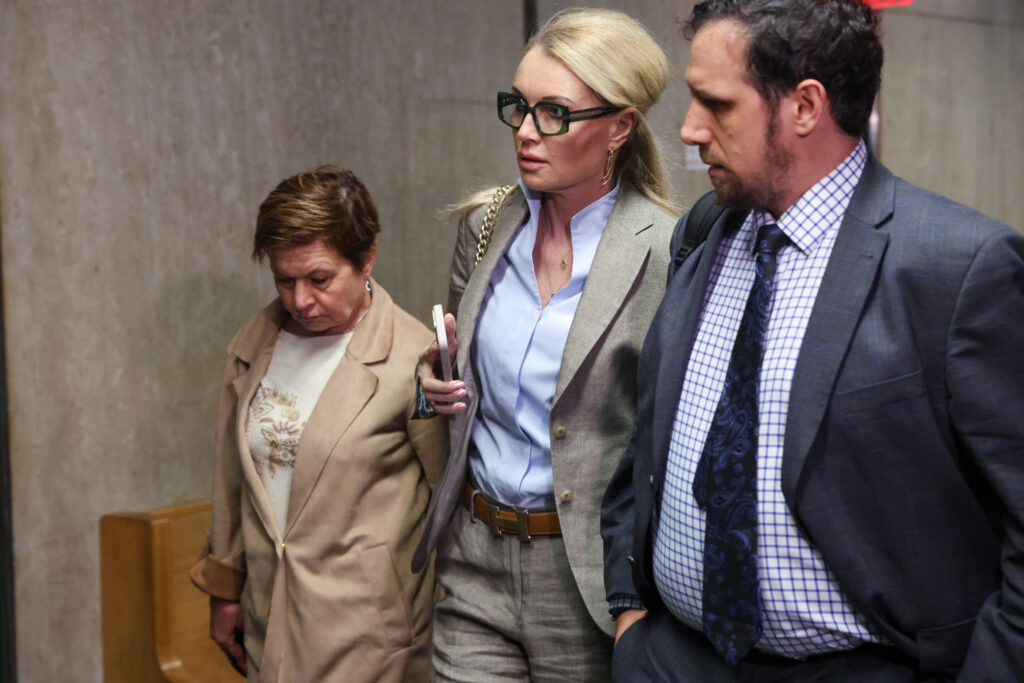
The fundamental question of consent was the key argument in Ms. Blumberg’s summation. She reminded the jury of testimony from another alleged victim, Ms. Haley, pulling up the transcript on the video screen.
“I am saying, no, no, it’s not gonna happen. No, and I told him also that I am on my period. … He was holding me down and I was trying to get up … I told him I had a tampon, to please stop. … He asked me where it was and found it and yanked it out just before putting his mouth on my vagina,” the transcript read.
Ms. Blumberg reminded the jury that the young production assistant, Ms. Haley, who was born in Finland, raised in Sweden, and resided in London at the time, and whom Mr, Weinstein had hired for his “Project Runway” on Bravo, which was shooting in New York, had been working in the United States on a tourist visa.
“The defense wants you to believe that Miriam [Haley] had the power,” the prosecutor said, again referring to an argument the defense had made on Tuesday, when it accused the women of using the power of their youth and beauty to seduce Mr. Weinstein. “Miriam had no power, not against the defendant in 2006. … He was the one who had all of the power and the control and he exercised it.”
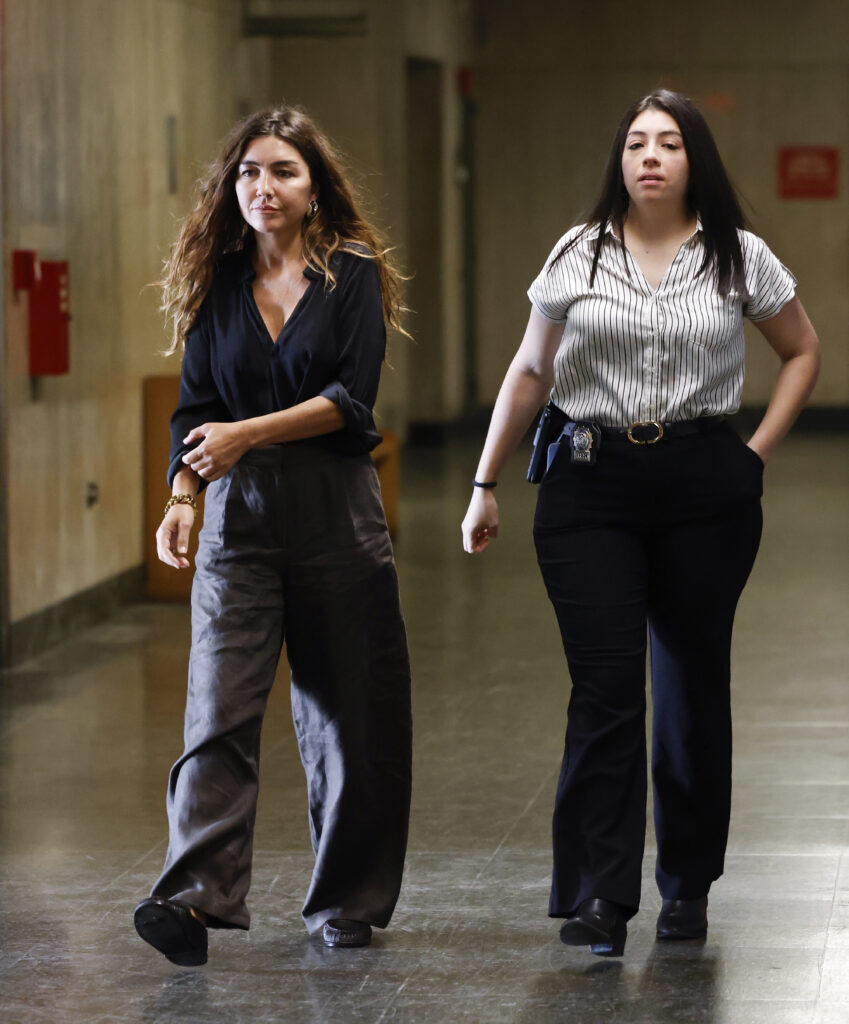
The prosecutor argued that Mr. Weinstein intentionally picked women he thought he could force himself on with impunity. Ms. Haley, who is from Sweden, was vulnerable because she did not have the proper immigration papers; the Polish model, Ms. Sokola, was vulnerable because she was a teenager when she allegedly first met the film producer, and she had a difficult relationship with her traditional family who disapproved of her Hollywood dreams.
The defense had questioned how it was possible that Ms. Sokola did not mention anything to her older sister, a cardiologist, about the oral sex Mr. Weinstein allegedly forced on her in 2006 in a hotel room in Manhattan, while her sister was sitting downstairs in the lobby. Furthermore, the defense pointed out that the same sister had provided the defense team with a diary Ms. Sokola had kept in Poland, while she was undergoing treatment for alcohol abuse in 2015.
In that diary, Ms. Sokola had made a list of men who she said had sexually abused her, and it turned out Mr. Weinstein was not on the list. Instead she had written two words next to his name, “Broken Promises.”
But Ms. Blumberg argued that Ms. Sokola, who always dreamt of being an actress, was ashamed to share that Mr. Weinstein had abused her with the man who was running the therapy program, because that man, the prosecutor said, was also in the entertainment industry.
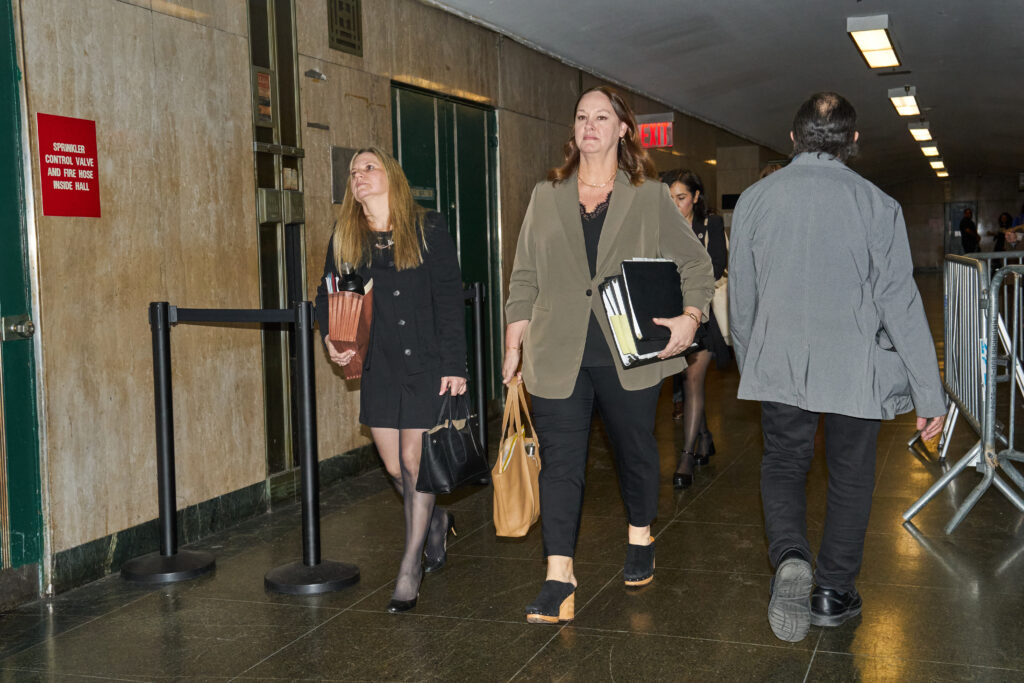
The prosecutor described Ms. Sokola’s sister handing the defense the diary as the “ultimate deceit.”
“She was trying to prove to this disapproving family that she could make it,” Ms. Blumberg said, explaining why Ms. Sokola had never shared the alleged assault with her family.
Ms. Blumberg also pointed to Ms. Mann’s vulnerability, when she reminded the jury that Ms. Mann had grown up in a poor household and was living out of her car, keeping her clothes in a cardboard box, when she met Mr. Weinstein.
Ms. Blumberg asked the jury to “tell the defendant what he already knows, that he is guilty.”
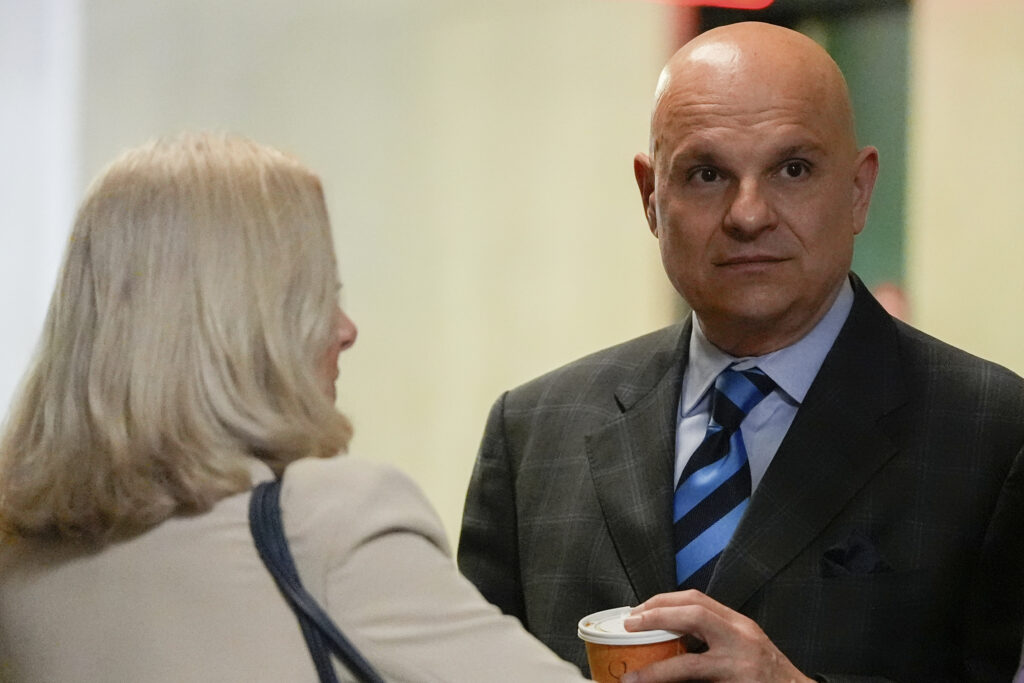
Mr. Aidala, who kept objecting to the word “rape,” asked the judge to instruct the jury that there is a difference between not wanting to have sex and not consenting to sex. Because in the defense’s view, the women may have not wanted to have had sex, but consented to it.
“My son doesn’t want to do his homework but he does it consensually,” the attorney argued. “She didn’t wanna have sex but she laid there like a dead fish and did have sex,” he added, referring to Ms. Haley, who had testified that she felt like a dead fish when she had sexual intercourse with Mr. Weinstein.
Ms. Blumger snapped back at the defense attorney, saying, “I am getting a lesson on sex crimes from Mr. Aidala,” to which he quipped, “I studied sex crimes when you were still in college.”
The judge will charge the jury on Thursday morning and then the seven women and five men will begin to deliberate the verdict.

